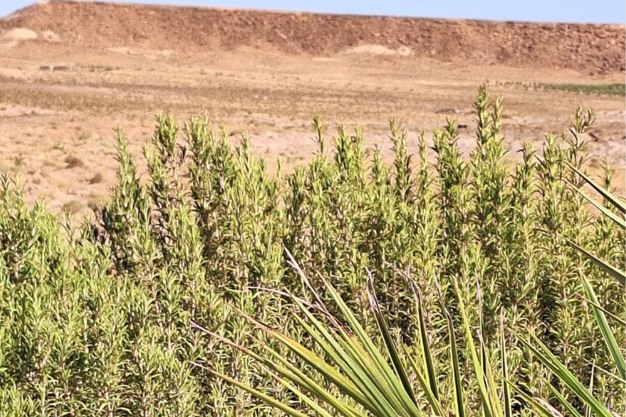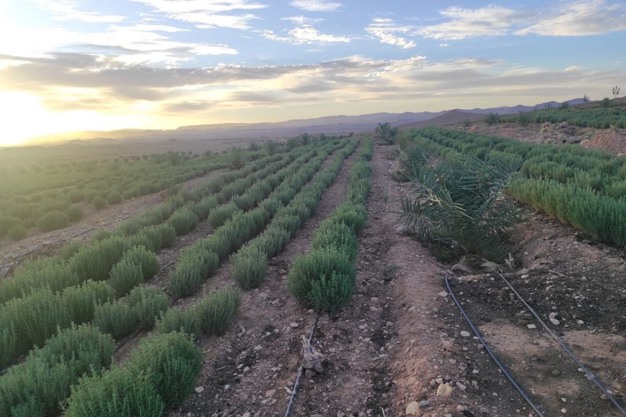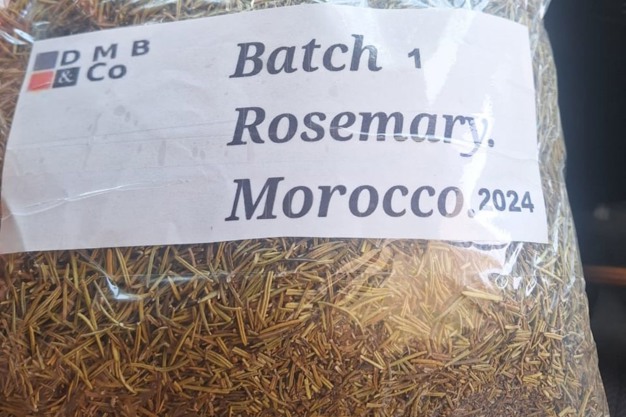Production of aromatic and medicinal plants in Morocco has suffered a severe blow this year due to persistent drought, leading to a drop in supply and the reconversion of many growers and exporters to other crops, according to Mehdi Benchekroun, owner of Domaines Mehdi Benchekroun.

The grower says, "Despite the recent rains that have blessed the kingdom, many regions have not received a single drop of rainfall. This has had an impact on the production of aromatic and medicinal plants, such as rosemary, in the Marrakech and Oriental regions. The Moroccan production model relies to a large extent on the adjudication of wild-grown parcels in the forests or mountains. For example, wild rosemary production under this model reaches one million hectares, while cultivated production represents only 10,000 hectares. Cultivated production has itself been impacted by drought. The lack of irrigation increases the heat and salinity of the soil, putting the plants into a state of hibernation. They don't die, but they don't allow any harvesting."
In this context, this year is seeing a delay in the adjudication of the harvest by the relevant authorities. According to Benchekroun, "There may not even be any parcels adjudicated in several regions of the country since we need to keep the patrimony available for regeneration."
Benchekroun continues, "Surface areas and volumes have therefore become limited, and we are seeing more and more solicitations from importers, especially for rosemary. This will involve a transfer of production to the cultivation method, to the detriment of wild growing, but also an inter-regional transfer of production."

In this context, the Ouarzazate region retains an advantage over other Moroccan regions affected by water stress. Benchekroun says, "Drought is a reality that affects us too, but we're resilient when it comes to certain crops like plants. We benefit from a favorable environment, at an altitude of 1,600 meters, with humidity of 15%, soil salinity of 6-7 pH, 10 hours of sunshine a day, and sandy soil. We face the same difficulties with wild rosemary as the rest of the country. But our areas of rosemary cultivated with drip irrigation are preserved and offer good quality production. Carnosic acid and rosemaric acid levels are notably very high".
The grower continues, "On my farm, we practice alternating irrigation and water stress, which responds to water supply constraints but is also favorable to rosemary production. We try to pursue an agroecological production model in these difficult conditions, based on organic production, solar energy, and responsible irrigation, as well as a local, women's workforce rooted in the cultivation of these plants, thus contributing to local rural development, particularly in areas suffering from drought and the disappearance of other crops such as watermelons."

According to Benchekroun, this year's difficult climatic conditions make it difficult to supply plants. He concludes, "The end use depends on the variety grown. In rosemary, for example, some varieties are suitable for fresh use in cooking, others for distillation, and others for botanical extraction, and they are not interchangeable. Thanks to our long experience in export, we offer a sourcing service for varieties we don't produce, in rosemary as well as in other plants such as mint, verbena, mugworts, and others."
For more information:
Mehdi Benchekroun
Les Domaines Mehdi Benchekroun
Tel: +212661214337
Email: mehdi.benchekroun@dmb-co.com
